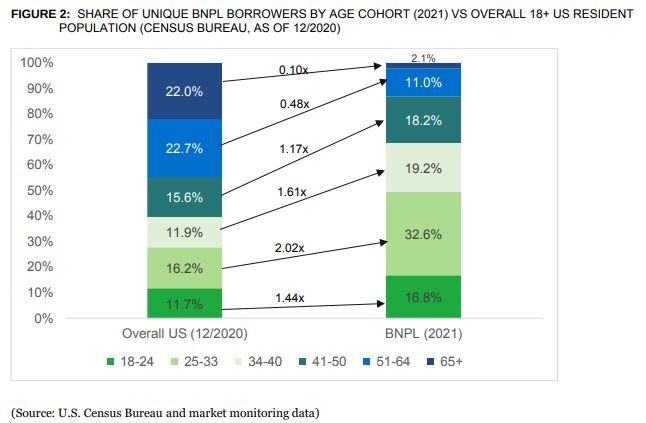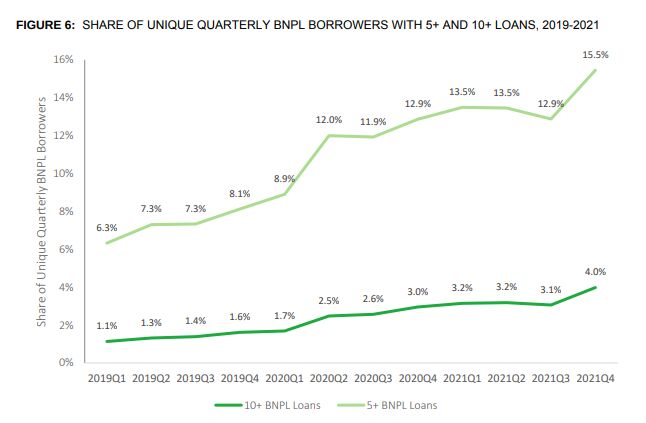👛 CFPB Reports on BNPL
- Frank Tian
- Sep 18, 2022
- 2 min read
Updated: Sep 26, 2022
Here is a summary with some highlighted numbers.
🔲 The Data
In Dec 2021, CFPB asked for data from 5 major BNPL operators in the US: Affirm, Afterpay, Klarna, PayPal, and Zip.
Yesterday the agency released an 80+ page report based on the aggregated data. No consumer-level data was available.
🔲 The Stats
◾ BNPL customers are skewed to the young: 49% are age 33 and under.
◾ Apparel and beauty is the biggest category: 59% of the total $ spent.
◾ Majority payment is from the debit card: 89% vs 10% from a credit card.
◾ Habitual users: 15.5% carrying 5+ loans; 4.0% carrying 10+ loans.
◾ Pay Late: 10.5% of borrowers are charged with a 1+ late fee.
🔲 The Profit Model
Using 2021 numbers:
◾ BNPL earns 4.0%~ of total purchase as revenue.
Merchant discount: 2.49%
Interchange: 0.67%
Referral: 0.32%
Late fees: 0.28%
◾ BNPL incurs 3.0%~ of total purchase as cost.
Payment processing: 1.47%
Credit loss: 1.30%
Cost of funds: 0.16%
◾ BNPL earns a profit of 1.0%~ of total purchase.
🔲 The Challenges
Before the regulator is yet to step in:
◾ Competition leads to lower revenue
The low barrier of entry makes merchant discounts a race to the bottom. Then come the heavyweights such as MasterCard Installment/Apple Pay Later.
◾ Increase in cost of fund
The Fed hike the rate by 225 bps already in 2022 … it could go another 150 bps.
◾ Rise of credit loss
Consumer credit loss is gradually normalizing towards the pre-pandemic level: 3.79% in 2021 vs. 2.93% in 2020.
It will become worse if a recession materializes, even a mild one.
🔲 The Actions
The operators have adopted the following:
◾ Hike the late fee
◾ Tighten the underwriting
◾ Turn the app into the lead engine
Full CFPB Report: Buy Now Pay Later Market Trends Consumer Impact 2022
🔹If you enjoy this post, consider receiving content like this in your inbox.







Comments